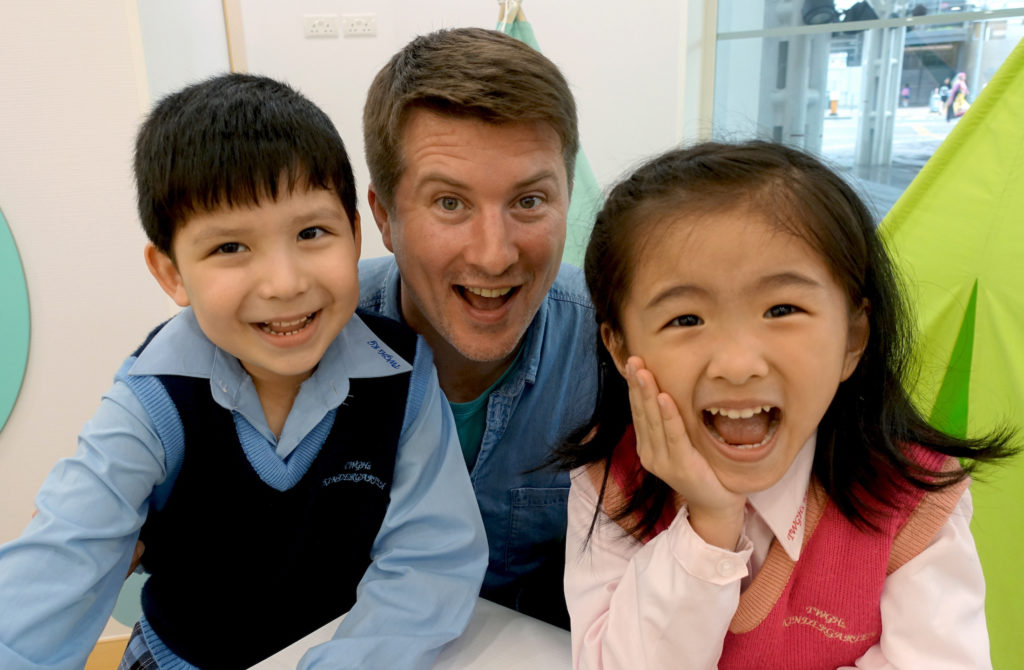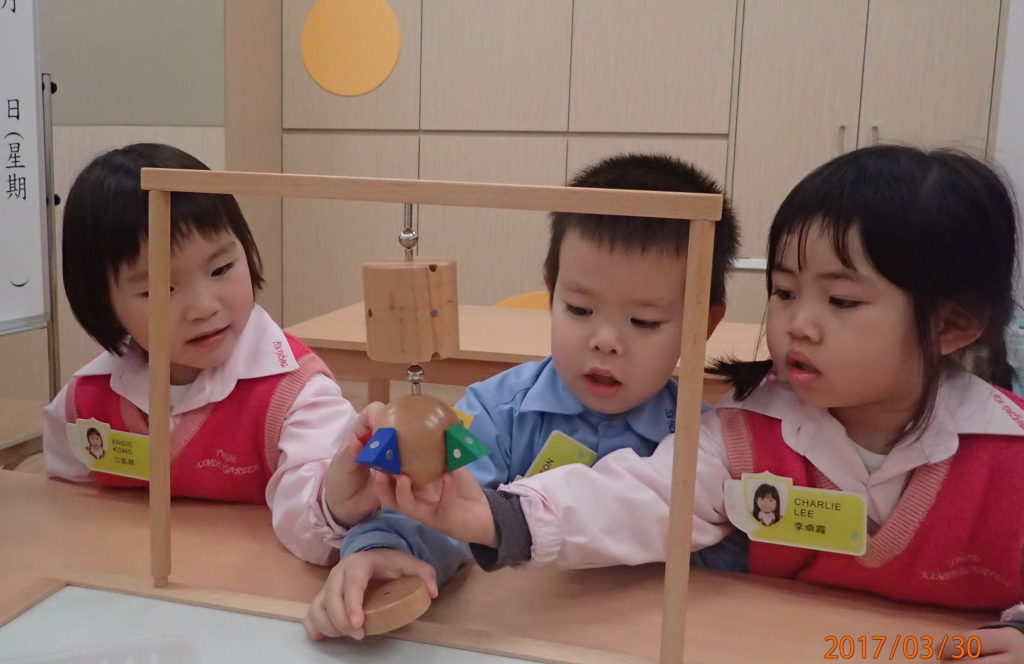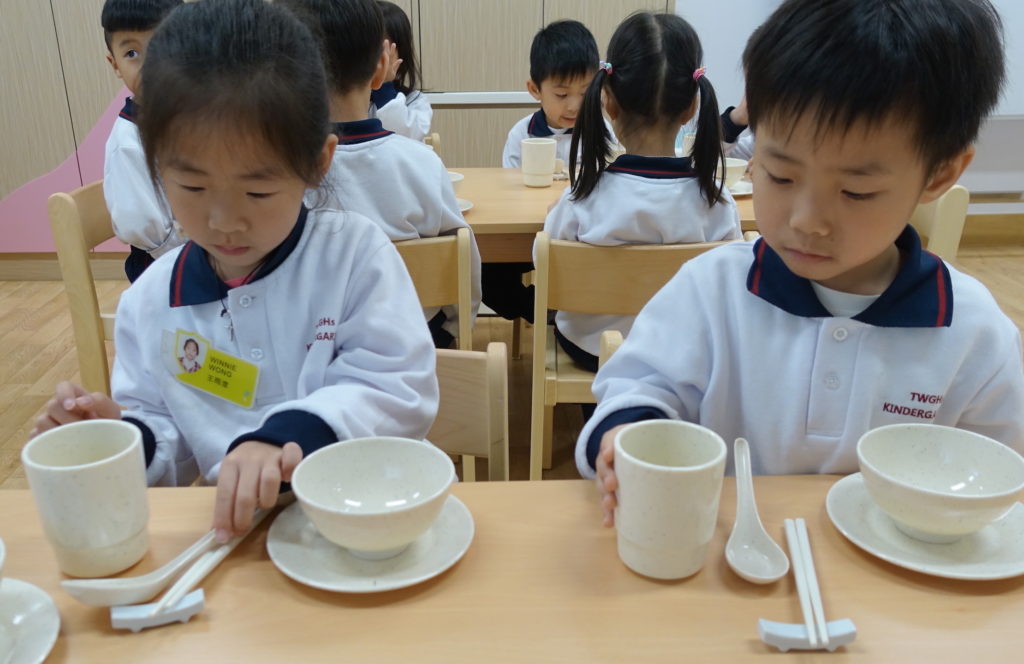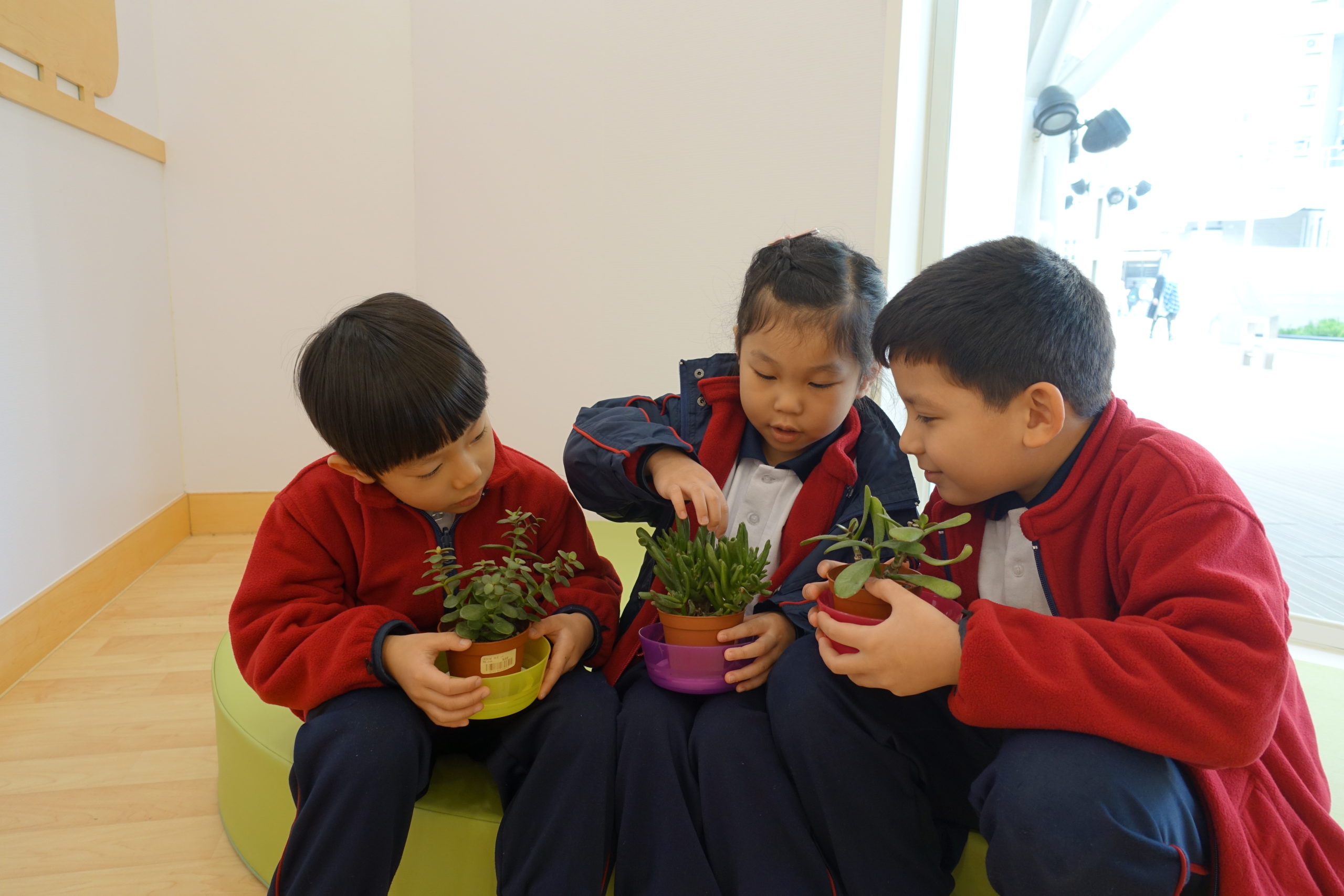We offer high-quality early childhood education, nurturing young talents and providing children with the skills and abilities that meet the trend of global development.
Based on the needs of child development, the aims of our curriculums can be divided into four major areas: “Physical Development”, “Cognitive and Language Development”, “Affective and Social Development”, and “Aesthetic Development”.
Through classroom learning and extracurricular activities, children will be able to be independent and obtain nine types of generic skills which are required for lifelong learning. Our kindergarten adopts different teaching methodologies, such as the thematic approach and story book approach, etc. It will enable children to learn actively and delightfully in an inspiring environment. Children’s learning effectiveness can also be increased with information technology.
(1) Healthy School Life
-Promote the message of “Healthy school”, create a healthy environment, and strengthen children’s, parents’ and teachers’ awareness of health.
(2) Reading Culture
-Promote the culture of reading, encourage our parents to read with their children, to cultivate our children’s interest of reading.

We offer half-day Bilingual Classes with 1 hour English and 2 hours Cantonese teaching every day. Our NET teachers teach part of the main subject such as English, mathematics, moral education, etc. It allows our children to have more opportunities to practice English daily and to be immersed in the English learning environment.
This setting is designed to prepare our children to cope with bilingual learning environments such as international, DSS and local primary schools. We also place great emphasis on teaching Chinese to children, in particular, Cantonese and Mandarin. Our native Mandarin teacher has obtained the first rank in the Putonghua Proficiency Test.
English story book approach: Part of the teaching materials include the Cambridge English Channel reading scheme.

We are the first kindergarten group in Hong Kong to introduce an award-winning Korean curriculums (Magnet Blocks and Board Games) for Elite Education.
Korean Game-based Educational Tool For Gifted Education
Korean Magnet Block Curriculum
Japanese Block Curriculum

Children will learn the social skills and table manners that enable them to become polite, confident and self-assured young ladies and young men.
Etiquette and social skills are not inherent. Children need to practise these skills again and again so they become habits. TWGHs Lucina Laam Ho Kindergarten offers Etiquette Lessons which cover the learning of social skills and table manners (eg Chinese, Western, Japanese, Korean, etc.). Students get accustomed to the proper etiquette required to become courteous and confident little ladies and gentlemen.

In 2015, 15 TWGHs kindergartens were honoured by the Award for Art Education in the Hong Kong Arts Development Awards 2014.
Aim:
To enhance children’s music, body movement and arts.
The purpose:

We plant different kinds of plants for children to observe, learn the ecological growth patterns and understand the importance of nature protection.
Through the cultivation of different species on campus, children are encouraged to observe and understand the natural processes, thus establishing values for nature conservation. By promoting a message of conservation in early childhood, our students will go on to become conscientious global citizens of the future .